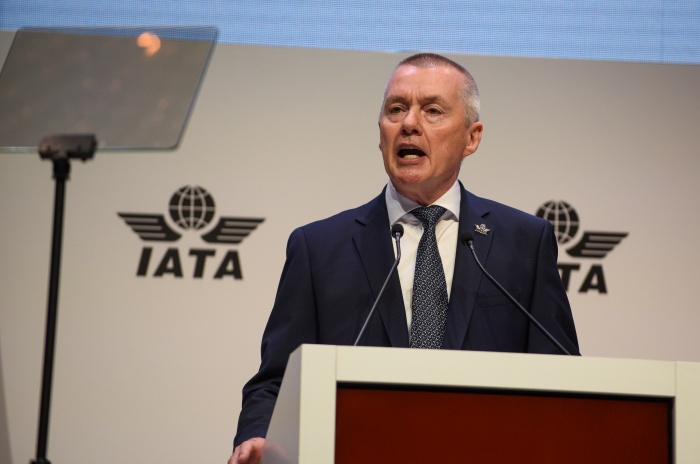
Breaking Travel News explores: IATA welcomes global aviation sector to Istanbul
The International Air Transport Association (IATA) annual general meeting is underway in Istanbul.
The event welcomes leaders of the global aviation industry, takes places alongside the World Air Transport Summit and is this year hosted by Pegasus Airlines.
The event (4-6 June) attracts the most senior leaders from among more than 300 IATA member airlines, as well as senior government officials, strategic partners, equipment suppliers and media.
“Istanbul will become the aviation capital of the world.
“Airlines will meet to review the industry’s recovery from Covid-19, to plan the way forward to a more sustainable future, to discuss the opportunities for technology to drive efficiencies from modern retailing to improved facilitation, and to understand the common regulatory challenges they face.
“Aviation is important.
“Connecting the world even as geopolitical divides deepen is a vital mission that requires profitable, safe, efficient and sustainable airlines.
“The outcomes of this AGM must set the direction for even more effective global connectivity,” said Willie Walsh, IATA director general.
Chairperson of the board of directors, Pegasus Airlines, and chair of the IATA board of governors Mehmet Nane said: “We are enormously proud to be hosting our industry partners in the great city of Istanbul and look forward to welcoming everyone here for the IATA AGM.
“Aviation came together to assist the people of Türkiye to rebuild after the tragic earthquake in February.
“Now aviation comes together to debate vital issues concerning our pathway to net-zero CO2 in 2050, the diversity of our industry, our operational recovery from the depths of Covid-19 and many other topics.”
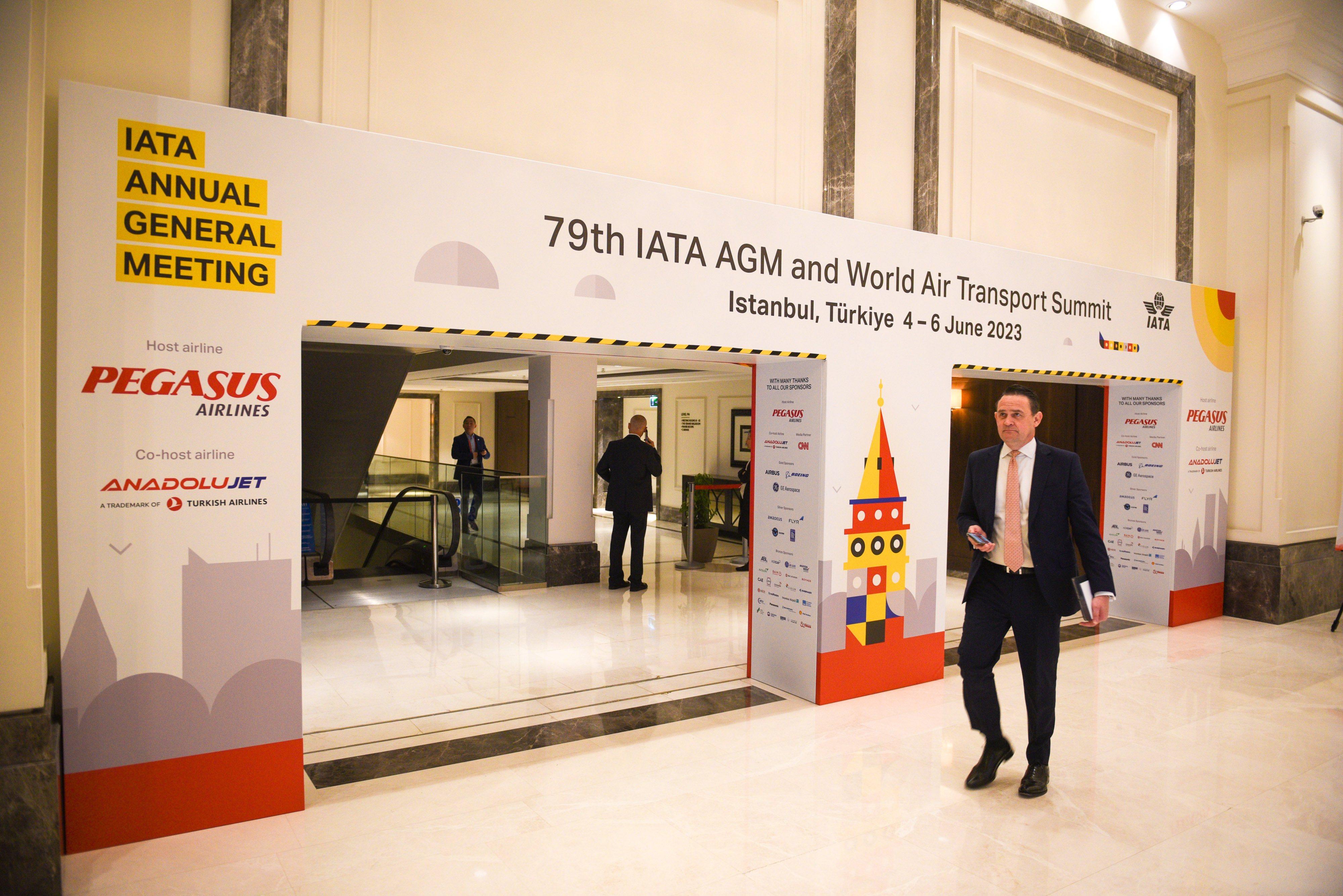
This will be the second time that the AGM is hosted in Istanbul, which last hosted in 2008.
Türkiye is rebounding strongly from the pandemic shut down.
In 2022 travel to/from Türkiye increased nearly 60 per cent and it is now the seventh largest international passenger market in the world.
“Since we were last in Istanbul, Türkiye has become an incredible global aviation powerhouse.
“Its carriers are leading the way in regional and international connectivity, and the magnificent new airport puts some other nations’ lack of airport investment to shame. There’s no doubt that Türkiye’s importance to global aviation will continue to grow significantly,” said Walsh.
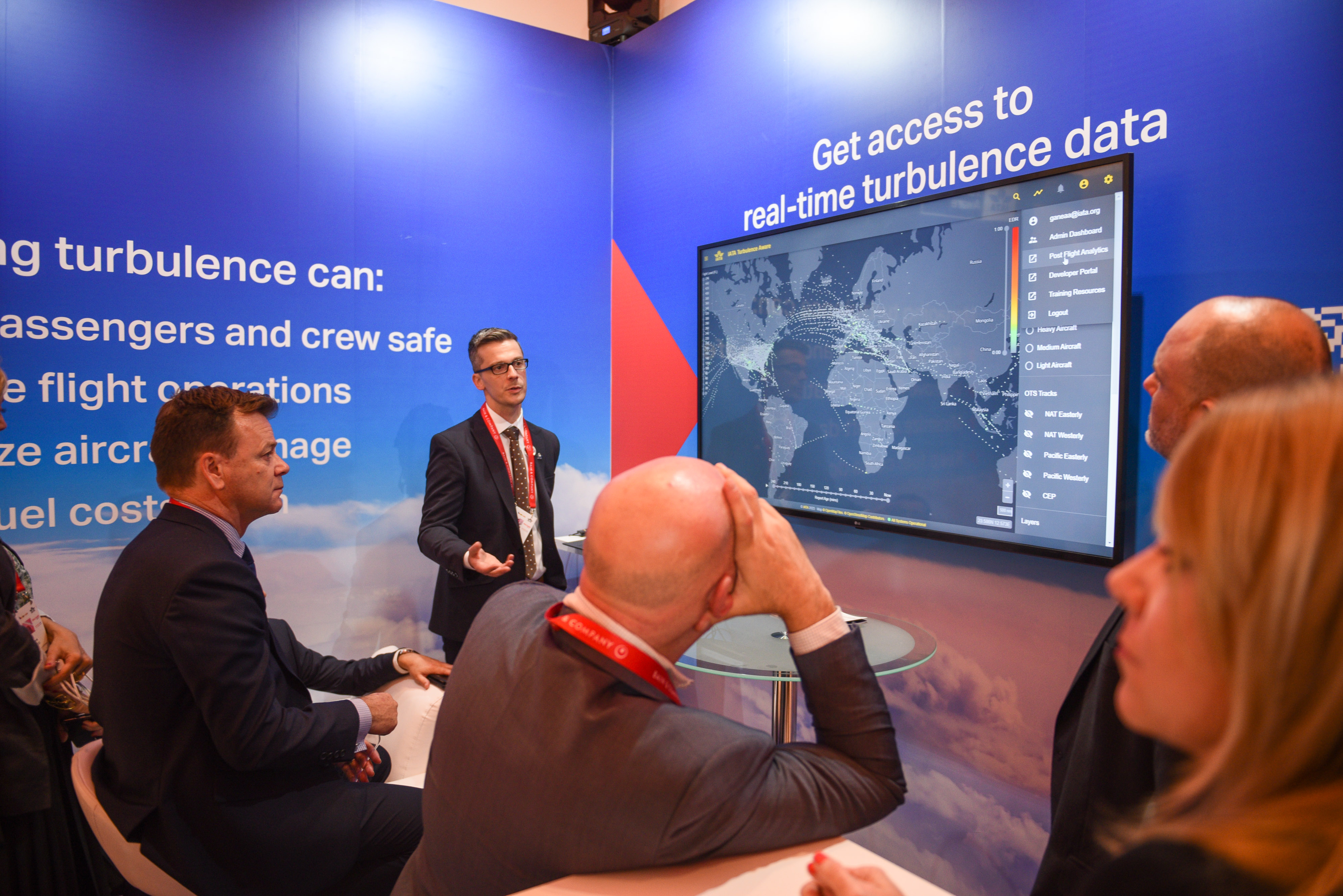
IATA figures also confirm continued strong passenger traffic demand in April.
Total traffic in April 2023 (measured in revenue passenger kilometres or RPKs) rose 45.8 per cent compared to April 2022.
Globally, traffic is now at 90.5 per cent of pre-Covid levels.
At 81.3 per cent, industry load factor was only 1.8 percentage points below pre-pandemic level.
Domestic traffic for April rose 42.6 per cent compared to the year-ago period and has now fully recovered, posting a 2.9 per cent increase over the April 2019 results.
International traffic climbed 48 per cent versus April 2022 with all markets recording healthy growth, with carriers in the Asia-Pacific region continuing to lead the recovery.
International RPKs reached 83.6 per cent of April 2019 levels.
“April continued the strong traffic trend we saw in the 2023 first quarter.
“The easing of inflation and rising consumer confidence in most OECD countries combined with declining jet fuel prices, suggests sustained strong air travel demand and moderating cost pressures,” said Walsh.
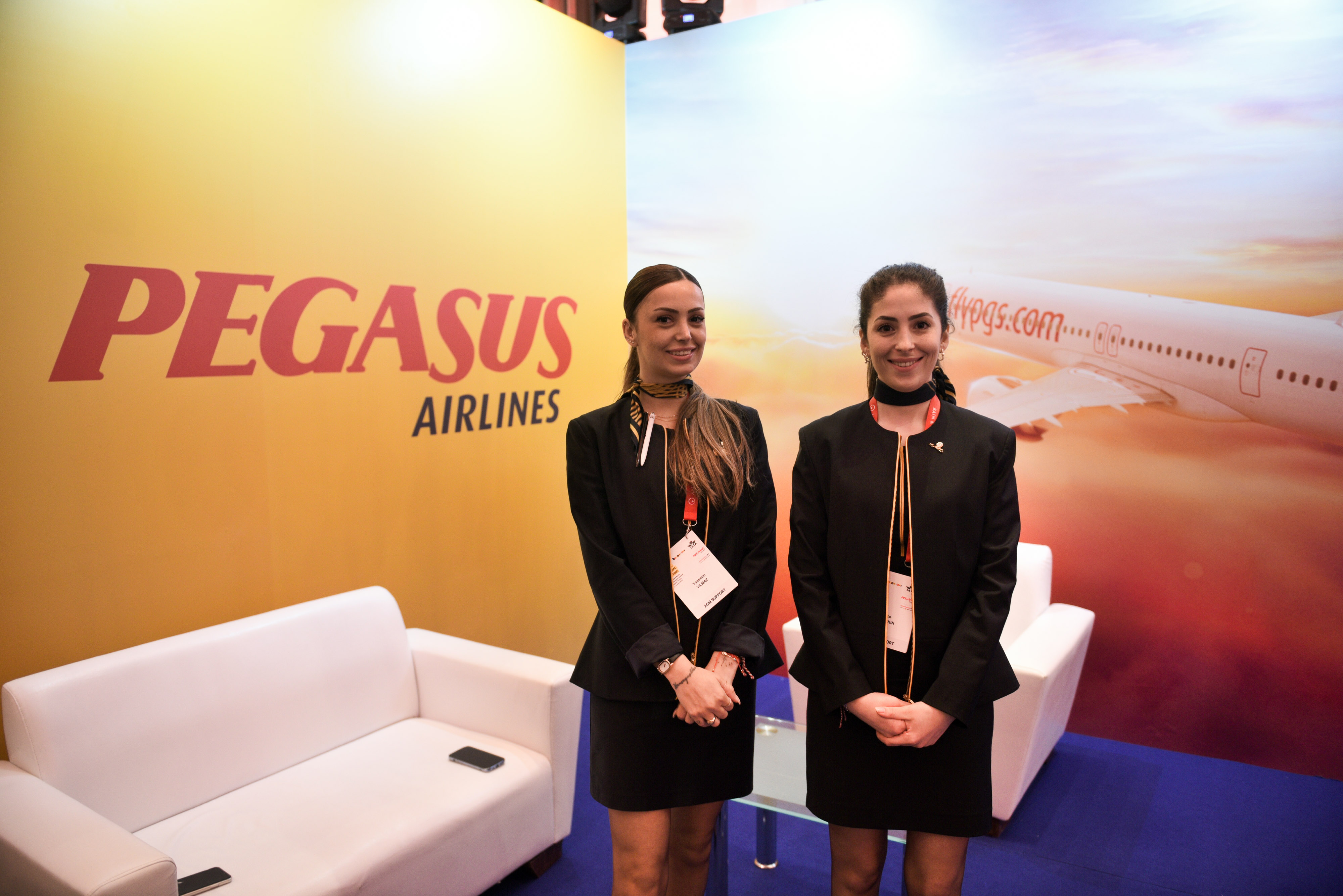
At the AGM, IATA unveiled a series of roadmaps aimed at providing step-by-step detailing of critical actions and dependencies for aviation to achieve net zero carbon emissions by 2050.
These roadmaps address aircraft technology, energy infrastructure, operations, finance, and policy considerations leading to net zero.
With the adoption of a Long-Term Aspirational Goal (LTAG) at ICAO’s 41st Assembly, governments and industry are aligned to reach the same net zero CO2 emissions goal by 2050.
As policy initiatives lay the foundation on which many of the needed innovations and actions will rest, these roadmaps will be a critical reference point for policy makers.
“The roadmaps are the first detailed assessment of the key steps necessary to accelerate the transition to net zero by 2050.
“Together, they show a clear direction and will evolve as we dig deeper to set interim milestones on the way to net zero.
“I must emphasise that the roadmaps are not just for airlines.
“Governments, suppliers, and financiers cannot be spectators in aviation’s decarbonisation journey.
“They have skin in the game.
“The roadmaps are a call to action for all aviation’s stakeholders to deliver the tools needed to make this fundamental transformation of aviation a success with policies and products fit for a net-zero world,” said Walsh.
The roadmaps were not developed in isolation.
A peer-to-peer review, complemented by a modelling tool provided by the Air Transportation Systems Laboratory at University College London (UCL), was conducted to calculate emission reductions for each technology.
Highlights of each roadmap include:
- Aircraft Technology: The development of more efficient aircraft and engines. Particularly important are the steps needed to enable aircraft powered by 100% sustainable aviation fuel (SAF), hydrogen or batteries. All development milestones are backed-up by announced investment and demonstrator programs. Also included are new engines, aerodynamics, aircraft structures, and flight systems.
- Energy and New Fuels Infrastructure: The focus is on the fuels and new energy carrier infrastructure upstream from airports needed to facilitate the use of aircraft powered by SAF or hydrogen. Renewable energy plays a vital role in meeting the aviation sector’s energy demand, and the roadmap outlines milestones to enable the necessary infrastructure developments.
- Operations: The opportunities for reducing emissions and improving energy efficiency by improving the way existing aircraft are operated. Automation, big data management, and the integration of new technologies are key enablers for optimizing air traffic management and enhancing the overall efficiency of the air transportation system.
- Policy: The need for globally aligned strategic policies to provide incentives and support for the aviation industry’s transition to a net-zero future. As with all other successful energy transitions, collaboration between governments and industry stakeholders is crucial in creating the necessary framework to achieve the decarbonization goals.
- Finance: How to finance the cumulative $5 trillion needed for aviation to achieve net zero by 2050. This includes technological advancements, infrastructure developments, and operational improvements.
The challenges to ramp up SAF production are a good illustration of the importance of these roadmaps.
As a drop-in solution, SAF is expected to deliver about 62 per cent of carbon mitigation needed to achieve net zero by 2050.
But even though SAF is expected to be fully implementable with future aircraft fleet, it still has major inter-dependencies on policy, aircraft technology, energy infrastructure, financing, and operations for which these roadmaps are critical.
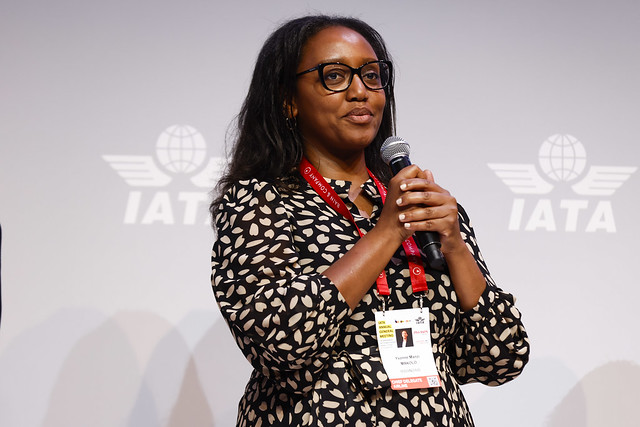
On the first day of the AGM, IATA announced that RwandAir chief executive, Yvonne Manzi Makolo, has assumed her duties as chair of the IATA board of governors for a one-year term.
Makolo is the 81st chair of the IATA board and the first woman to take on this role.
She has served on the board since November 2020.
She succeeds Pegasus Airlines chairperson, Mehmet Tevfik Nane, who will continue to serve on the board.
“I am honoured and pleased to take on this important role.
“IATA plays a critical role for all airlines - big and small, various business models, and in all corners of the world.
“Leading a medium-sized airline in Africa gives me a unique perspective on issues that airlines hold in common.
“At the top of the agenda are decarbonization, improving safety, the transformation to modern airline retailing, and ensuring we have cost-efficient infrastructure.
“I am particularly pleased to be taking on this role as IATA launches Focus Africa with the aim of unifying the continent’s stakeholders so that together we can strengthen the contribution of aviation to Africa’s social and economic development,” said Makolo.
Chris O’Toole

